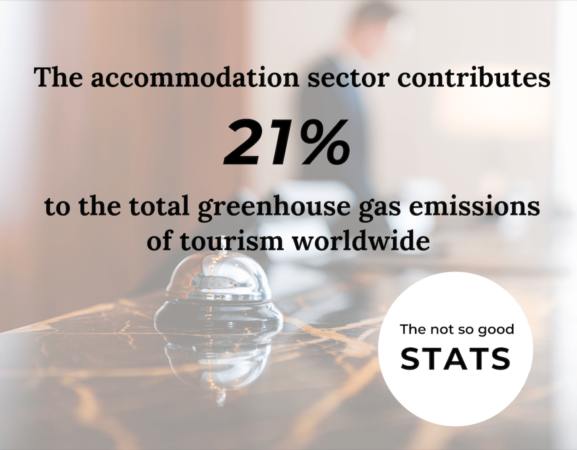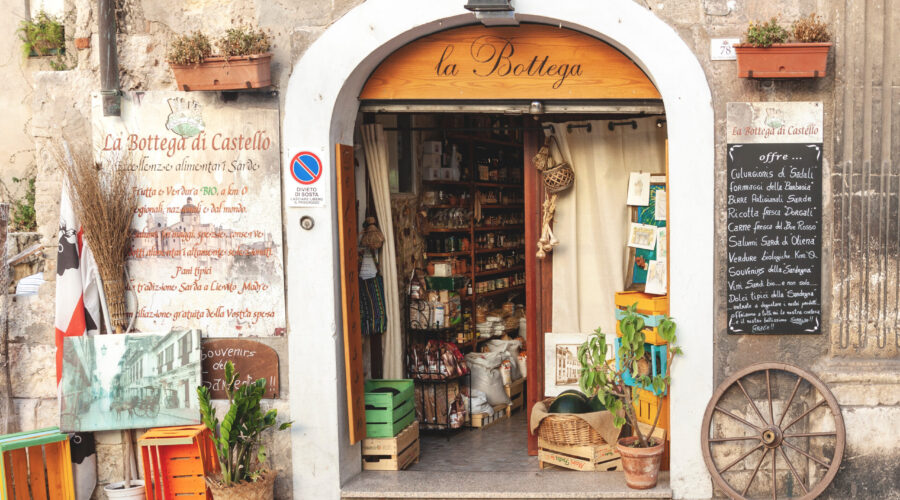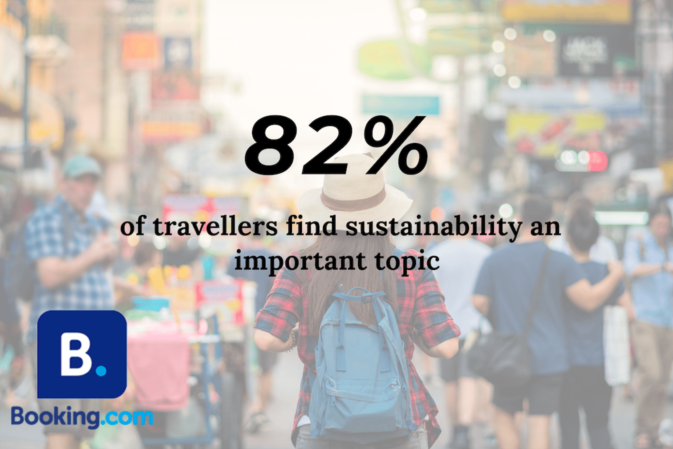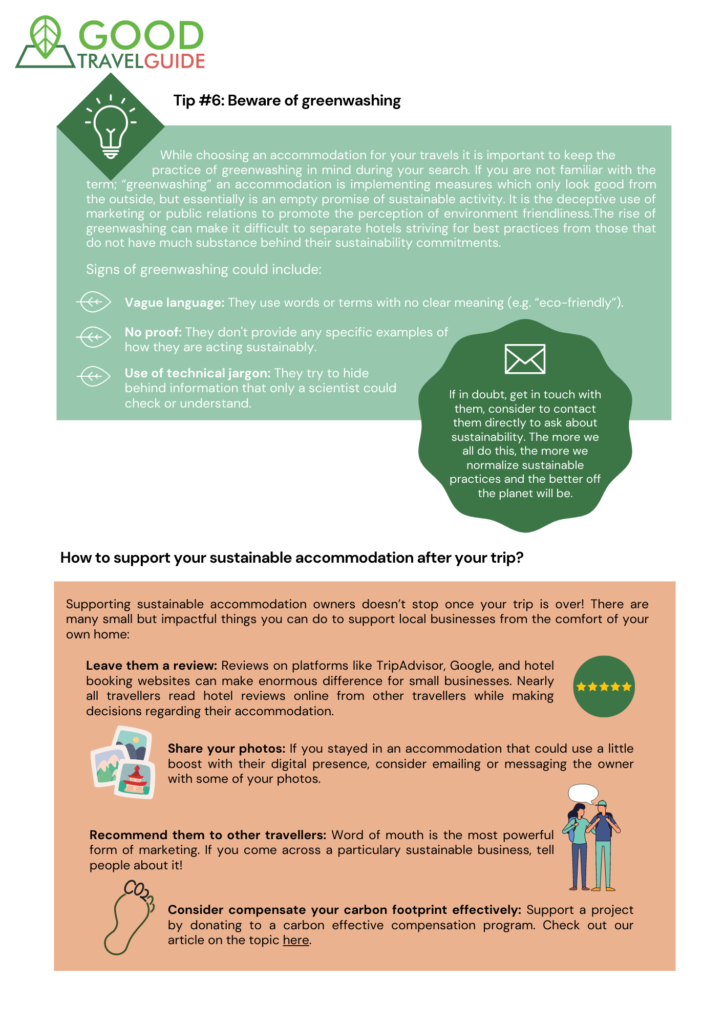© Good Travel Guide, March 2021 by Nicole Hulsebos
We all need a place to sleep when we travel. But where you choose to rest your head while travelling is a major factor of your travels’ impact. We are not only talking about your carbon footprint or the environmental impact your accommodation choice has on the destination, but also how it contributes to social and economic impacts on local communities and individuals. They can be both positive and negative.
What is the issue with sustainability in the accommodation sector?
Your accommodation choice influences your trip in many ways as you spend quite some time there. It serves as the home base from where you explore the desired areas and they usually support and promote services of various types in the tourism industry. Consequently, it inevitably has a great impact on the sustainability of your travels. As sustainability is one of the most important issues currently facing our world, the tourism accommodation sector definitely requires attention from a sustainable tourism development perspective.
The challenge of making the accommodation sector more sustainable deserves attention given both its significant current (negative) impact and its potential to make a (positive) contribution. Tourism can have a positive effect on a community or destination, but there is increasing concern on the negative environmental, socio-cultural, and economic impacts.
From an environmental perspective, many studies underpinned that the accommodation sector historically had a dramatic contribution to harming natural and cultural environments.[efn_note]Gössling, S., & Peeters, P. (2015). Assessing tourism’s global environmental impact 1900–2050. Journal of Sustainable Tourism, 23(5), 639-659.; Shahzalal, M. (2016). Positive and Negative Impacts of Tourism on Culture: A Critical Review of Examples from the Contemporary Literature. Journal of Tourism, Hospitality and Sports, 20, 30-35.[/efn_note] The tourism sector contributes 8% of the total global greenhouse gas emissions and it is estimated that the accommodation sector makes up 21% of this.[efn_note]Li, L., Li, J., Tang, L., & Wang, S. (2019). Balancing tourism’s economic benefit and CO2 emissions: An insight from input–output and tourism satellite account analysis. Sustainability, 11(4), 1052[/efn_note]

Collectively they consume a large amount of energy, water and non-renewable resources in their day-to-day service operation. This is due to the energy-intensive facilities and services of tourist amenities. Hotels are equipped with air-conditioning units, water heaters for warm showers, pools, electricity to power artificial lighting that is in operation throughout the entire year.[efn_note]Becken, S., Frampton, C., & Simmons, D. (2001). Energy consumption patterns in the accommodation sector—the New Zealand case. Ecological economics, 39(3), pp 371-386.[/efn_note]

The social-cultural impacts of tourism relates to interactions between people with different cultural backgrounds, attitudes and behaviours. While many of us search for an authentic experience and are mindful of the communities we visit, many travellers still look for recognizable facilities in an unfamiliar environment, such as well-known fast-food restaurants and hotel chains. This phenomenon of increasing standardization could lead to an eroding of cultural identity and destruction of heritage. Standardization threatens the identity of host communities by slowly eroding the local culture and traditions.[efn_note]Ruhanen, L., & Whitford, M. (2019). Cultural heritage and Indigenous tourism[/efn_note]

Lastly, the economical impact increasingly leads to unsustainable outcomes for the destination. Tourism can increase employment in a destination, it has the potential to drive economic growth and lead to a reduction in poverty [efn_note]UNWTO (2014), Measuring employment in the tourism industries–guide with best practices. Madrid: UNWTO[/efn_note]. However, as a destination becomes popular it will attract large foreign companies that push out local business owners. If the destination allows this to happen, the big players take away the opportunity for locals to make a meaningful profit.[efn_note]Supradist, N. (2004). Economic leakage in tourism sector.[/efn_note]
With this considered, the diverse accommodation facilities – if they are not managed in the right way – can contribute to severe environmental degradation, an exploitation of culture and heritage and the loss of economic benefits for the local population. Accommodation is a central element of tourism, thus they have a vital role to play in the road towards sustainability of tourism. They have for example the possibility to include more eco friendly amenities in their establishments, or educate visitors on sustainable behaviours and encourage them to buy products and to use services that have a more sustainable impact.
Towards a more sustainable accommodation sector
In the last few years, tourists have changing expectations and the industry is starting to change to meet their needs. Data and research on travellers confirm that more tourists look for sustainable accommodation. According to research conducted by Booking.com, 82% of travellers find sustainability an important topic.[efn_note]Booking.com, 2020[/efn_note]

Gone are the days when vague commitment to conserving water and electricity was the marker of a sustainable accommodation. People are asking more about green credentials, what practices are in place and what hotels are doing to minimize their impact on the environment. The need to address environmental problems and related social issues has become an important point of interest for hotelkeepers and their managers throughout the world.

The industry has launched various initiatives to reveal their willingness to support sustainability, such as putting up eco-labels, the implementation of practices related to sustainable conduct and the adoption of environmental management systems.[efn_note]Abdou, A. H., Hassan, T. H., Dief, E., & Moustafa, M. (2020). A Description of Green Hotel Practices and Their Role in Achieving Sustainable Development. Sustainability, 12(22), 9624.[/efn_note] For an accommodation to be sustainable, it should take on the role to minimise the negative impacts of tourism and ideally be beneficial to the area in which it takes place. A growing number of accommodations have been adopting sustainable practices, from waste management to water and energy conservation, and have meaningfully engaged in important social and environmental causes. In addition, accommodation providers contribute to sustainability in tourism by promoting the local culture and traditions and direct visitors towards authentic cultural tours, restaurants or experiences.
What is your role?
As travellers and tourists, we need to take responsibility for advocating sustainable travel and tourism. Consciously choosing sustainable accommodation when travelling is one of the most important strategies to travel responsibly. It is also a driver for the tourism industry to become more sustainable. You have the power to ensure you have a net positive and sustainable impact on the place and people you are visiting.
The Good Travel Guide has created a downloadable guide which can help you find – and assess – a sustainable place to stay when travelling.
Download: How to find sustainable accommodation








